Don Wettrick on Entrepreneurship in the Age of AI and the StartEdUp Foundation
Key Points
-
The StartEdUp Foundation exemplifies how fostering entrepreneurship in education can cultivate problem-solving and leadership skills in students.
-
AI tools open new opportunities for young entrepreneurs, emphasizing the importance of integrating technology into education.
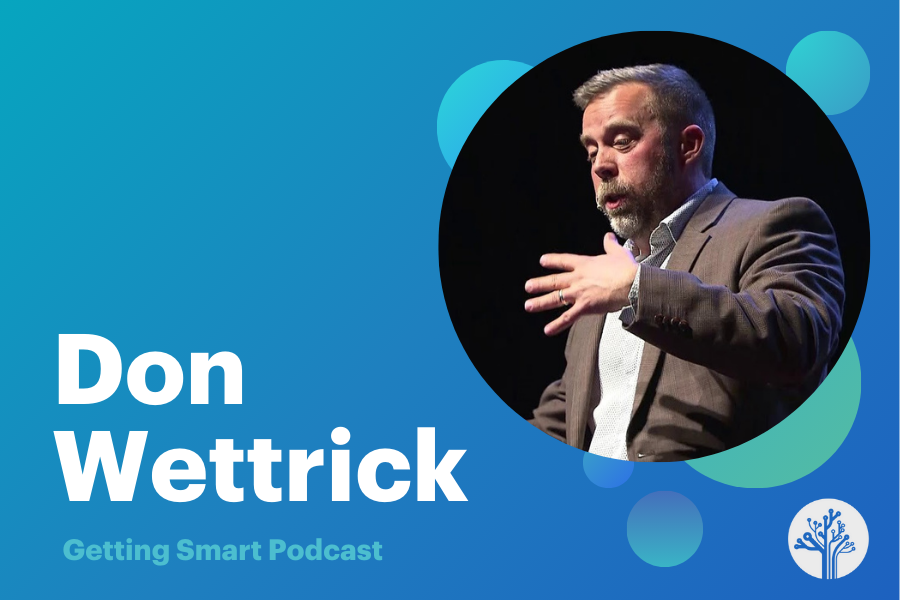
In this episode of the Getting Smart Podcast, Tom Vander Ark chats with Don Wettrick, CEO of the StartEdUp Foundation, to explore the future of entrepreneurship education. Don Wettrick talks about how the foundation is transforming high school students into proactive problem-solvers and innovators through initiatives like the Innovate Within pitch competition. This program empowers young minds by encouraging them to tackle real-world problems, leveraging tools like AI to enhance opportunity recognition, design thinking, and impactful execution. Wettrick gets into the importance of embedding entrepreneurship as a universal skill set that can be applied across various careers, enabling students to develop an entrepreneurial mindset that extends beyond just starting businesses.
The conversation also sheds light on the vital role of educators and innovation hubs within schools. By fostering a culture of entrepreneurship, schools can become centers of innovation, where students are encouraged to work on meaningful projects that contribute to their communities. The StartEdUp Foundation supports teachers through accelerators and networks, allowing them to integrate entrepreneurial experiences into their curricula. Don Wettrick’s vision for education is one where every high school acts as an innovation hub, nurturing students’ capabilities to identify and solve problems. This episode underscores the potential of entrepreneurship to reshape education into a platform for contribution, preparing students not just for future careers, but for immediate impactful engagement with the world around them.
Outline
- (00:00) Introduction to Entrepreneurship in the Age of AI
- (03:15) Entrepreneurship as a Universal Skill
- (06:30) Challenges in Teaching Entrepreneurship
- (07:57) Teacher Accelerator and Fellowship Program
- (12:54) Success Stories and Impact
- (18:57) The Role of AI in Modern Entrepreneurship
- (21:55) Vision for Innovation Hubs in Schools
- (24:10) Advice for Young Entrepreneurs and Educators
- (25:57) Encouraging Problem-Solving at Home
- (28:04) Closing Thoughts and Final Tips
Introduction to Entrepreneurship in the Age of AI
Tom Vander Ark: In his great new book, Education for the Age of AI, Charles Fadel said entrepreneurship is the job of the future. Entrepreneurship is about identifying problems and spotting opportunities, developing innovative solutions, and creating value in sustainable ventures. In the last few months, powerful AI tools that help with all three of those tasks—opportunity recognition, design, and impact—have become widely available worldwide, including to young people.
It creates a new level of opportunity, particularly for young people, but it also accelerates the pace and need for entrepreneurship. So there’s a new need and opportunity for everyone, especially young people, to develop an entrepreneurial mindset and the skills of entrepreneurship. You’re listening to the Getting Smart podcast. I’m Tom Vander Ark, and today we’re talking to Don Wettrick about entrepreneurship education. Don’s been promoting entrepreneurship in Indiana for more than 25 years, including 20 years as a teacher and teacher leader, and for the last seven years as the CEO of the StartEdUp Foundation, which hosts the nation’s largest high school pitch competition. Don, welcome back.
Don Wettrick: Thanks, Tom. It’s good to see you again.
Tom Vander Ark: Why is entrepreneurship education important?
Don Wettrick: Oh man. Where do I begin? Because everything you’ve ever purchased in your life solved a problem, and the world is full of problems. One of my favorite quotes about education was from Seth Godin: Education could be boiled down to two things, solving interesting problems and the leadership to get it done. I would say the first priority is identifying an interesting problem, then beginning to work on it. Entrepreneurship is a fancy way of saying I’ve identified a problem that I think I know how to fix.
Tom Vander Ark: Your answer reminded me of Lead Innovation Studio in Kansas City. It’s a cool high school. The first class that students take is leadership and design. I’m pretty sure it was Seth Godin who identified that starting high school with those two questions, learning how to lead and learning how to spot and solve problems, is the right way to go.
Don Wettrick: Absolutely. And do it for real. At the risk of sounding like Johnny Cochran, I identified a long time ago that the world is full of moaners and groaners. I wanted to create seekers and peekers—opportunity seekers listen to people complain and think, “I can do something about it.” Peekers are really what’s getting interesting because students that are peeking around the corner and saying if these scenarios are right, this is gonna be a big deal. Knowing the band before it’s cool, right? I had students telling me back in 2012, eSports is gonna be a really big deal in the United States. We should start something here at our high school. Those kids were absolutely peeking around the corner. So that ability to seek opportunities is another way of saying entrepreneurship.
Tom Vander Ark: I love that.
Entrepreneurship as a Universal Skill
Tom Vander Ark: Is Fadel right that entrepreneurship is the job of the future? Is it for everybody, and does that mean everybody has to go start a business, or is this a broader set of skills that everybody will employ in different ways?
Don Wettrick: Man, that’s a deep question because you know the difference between an entrepreneur and an intrapreneur. I think the entrepreneurial mindset is of the future for sure. Really, even the people that know how to augment AI to make it more efficient. So is everybody gonna be an entrepreneur? No. But even if you’re working at, pick your poison, whether it’s retail, whether it’s engineering, whatever. If you can identify a problem instead of saying, “Well, it sucks,” and I like to complain around the water cooler about it, if you can take ownership and say, “I think I’m onto something. I’d like to form a small team and we can execute on it,” you are the most valued person at that company. Even if you are at a fast-food restaurant saying, “Everybody’s complaining about our bathrooms, I’m gonna take initiative and make sure that I spot-check them every 30 minutes.” Oh my gosh. And that ability to listen to people complain and then provide solutions is, I think, the gold standard.
Tom Vander Ark: Yeah, a couple of times you’ve talked about problem-solving or opportunity spotting. I really think that’s the new superpower. Our friends at the Kern Foundation run a national network of engineering schools where they teach an entrepreneurial mindset. Engineering’s always been about designing solutions, but they said no. Actually, an entrepreneurial mindset starts with opportunity recognition.
Don Wettrick: Yes.
Tom Vander Ark: Then it’s designed, and then it’s delivering value. It’s a cycle all the way to pleasing a customer group. So it’s opportunity recognition, design, and impact. And those feel like an important set of skills that whether you start a company or build a nonprofit initiative or deploy them as an intrapreneur, as you just said, that spotting work worth doing and finding an opportunity will be super valued anywhere.
Don Wettrick: Yeah, yeah, and I think that seems so obvious, but we have a culture problem where it just feels good to complain. Man, awareness campaigns. I think there was a commercial like five or six years ago that it was a security monitoring system, and they’re like, “Hey, just wanna let you know your credit card got hacked.” I’m like, “What are you doing about it?” “Oh no, we’re just a monitoring system. You’re being ripped off, and what are you doing?” “No, nothing.” I think we’re really good as a nation—not just young people—at pointing out what stinks. I like for my young people to go, “All right, I’ll give this a go and see what happens.” And by the way, even by leading, that’s your opportunity because the entrepreneurs that we work with, they’re marveling at a kid that has tried three businesses and failed, and they’re like, “Oh my gosh, the education you’ve gotten is gold.” That ability just to lead and go, “Yeah, I gave it a shot and I lost all my money. Do it now before you have kids.”
Challenges in Teaching Entrepreneurship
Tom Vander Ark: One cool thing about Kansas City is that as a region, they embrace the idea of entrepreneurship, and they’ve made a goal that every kid in the region will have an entrepreneurial experience. The problem is it turns out it’s pretty hard for traditional high schools to teach entrepreneurship. There’s usually not a class called entrepreneurship. It’s hard to know where to fit it in. So I’d love to know what you’re doing at StartEdUp Foundation in Indiana.
Tom Vander Ark: Tell us about this pitch competition and how you get young people involved in entrepreneurship.
Don Wettrick: One, we have a teacher accelerator. I mean, by the way, any student can participate in it, it doesn’t matter. But we now have several teachers because through the evolution of Innovate Within, it just kept getting more and more sophisticated. This thing is really hard to win now. But in the first couple of years, we kept noticing that there were certain schools that were better, like the students had gone through some pivots and some changes. They understood product-market fit, they understood costs. And so we started looking into it. We realized that it wasn’t the school, it was one teacher, and amazingly it was a teacher that half the time they weren’t even in the business department. They were engineering teachers, they were music production teachers, they were band directors. But in their class time, they’re like, “Well, I’ll tell you if somebody can fix this.” And the students liked Innovate Within.
Teacher Accelerator and Fellowship Program
Don Wettrick: So we started basically this fellowship of very rare teachers, which is now turned into an accelerator that we find the right teachers to be in this inner circle. Because we have two core beliefs on this. Factually speaking, nobody knows more people than teachers. So if you can bind them together and chart their network, there’s nobody you can’t get to. And if you need a, “Hey, I need,” like not too long ago, there was a teacher in our fellowship that’s like, “Hey, does anybody know anybody in plastic injection molding?” Eight hands go up. “My best friend’s brother’s uncle.” This teacher network is, when it’s combined, there’s so many things that we can get for students for free. And then secondly, when we start talking about seeing a problem as an opportunity, therefore if you see more problems, you are open to more opportunities. So sometimes the students that are going to the really, really nice upper-end schools, ironically, they’re not seeing as many opportunities. The students that are daily seeing, “Well, that sucks. That sucks,” they’re going, “Wait a second, there’s a gold mine here.” And it is those teachers that spend some time with our kids throughout the school day saying like, “All right, what would you do? How would you go about that? Break it down for me.” So we have a network of teachers multifaceted in different departments that are just fixated and they love solving problems.
Tom Vander Ark: How many teachers, how long is the fellowship? What do they do? What do they learn?
Don Wettrick: Man, I love your questions. So it is now an accelerator at year one, because some of our teachers have been with us five-plus years, they’re now at a fellowship level. They get some extra perks and benefits. They got to do some cool things overseas, and we’ve got some opportunities for them. The teachers in the accelerator, it runs the school year. And if you want to continue, there’s some things on how to continue. But essentially there’s some curriculum, there’s an all-hands-on-deck thing at the beginning of the year. It’s in person. And then we have monthly get-togethers, not only to compare notes but to compare networks. But we also have a really unique network. We’ll have some guest speakers on. We actually do that same thing with students too. The teachers that are in the network, we’ve had on some interesting thought leaders. We did a thing last month with an actress named Tiffany Haddish, did a thing last year with 50 Cent. Just odd things of that nature of getting them to be part of, “Hey, solving problems in school, entrepreneurship, school.” So the teachers get those kinds of fun things to do.
Tom Vander Ark: So Don, there are a couple of other folks in the entrepreneurship education space that have classes with a really well-defined curriculum, and then teachers go get training and kids have a really uniform experience. This sounds different. It sounds like the entrepreneurial experiences might show up in each one of these schools in a little bit different way, in a little bit different class. Is that it?
Don Wettrick: Yes. And it’s kind of funny because there are some schools where the engineering department is so good that in this competition they have a lot of really well-done prototypes. We have some schools that are so passionate about social entrepreneurship and social cause changes, stuff. They have a lot of, you guessed it, things in social entrepreneurship. So it really has reflected the educator and, I’ll say this, and I’ll name it after them. We call it the Brett Taylor Effect. One of our teachers at Terre Haute North just kept talking about it, but he was asking the other teachers down the hall to help him. So there was one guy in the prototyping department that had the cool CNC routers and 3D printers, “Hey, would you help my students with this?” So he wanted to be a part of the fellowship. Then he noticed that the TV production and documentary film teacher down the other hall could work on, sizzle reels and some marketing help. And so it, even though it started with one teacher in one certain department, it grew as opposed to a, it has to be in a business 101 class. That’s definitely been our difference. And quite honestly, our curriculum is modular. You can pick and choose here and there. But at the end of the day, we still want you to see a problem as an opportunity, break it down, and share with us what your solution is.
Tom Vander Ark: That’s very cool. And so you’ve been doing this for, what, six or seven years? You’ve reached dozens of teachers.
Don Wettrick: Oh yeah. A hundred. Yeah, yeah, yeah. This is year seven for the fellowship. This is year five-plus, uh, as an actual fellowship that is backed and all this other stuff. Yeah. We’re about to be in year five.
Tom Vander Ark: And what about the students? You have a pitch competition that I mentioned in the opening. What’s that about?
Success Stories and Impact
Don Wettrick: It’s called Innovate Within. Full transparency, the Secretary of Commerce and the governor approached us, and they wanted to do a Shark Tank kind of thing for high school students. But we were really different. This is not a business plan competition. We did not want you to talk about vaporware and you had a $50 million budget; you have a budget of $5 or whatever. But Innovate Within is, is gotta be huge. And if I can humble brag about the kids within this last two years. Well, just recently we had two students get into Y Combinator. And if that’s the most, the second youngest to ever get into YC. At 18 that got into YC. We had two that got into Forbes 30 Under 30. We had a young man that just got five mil in National Institute of Health for his research on his AI and VR addiction therapy. It, it’s, it’s, it’s been amazing and I, and again, I credit the teachers for spending some time with them, but again, the setting the tone of this is not a business plan competition. What problem are you solving? And we’ve had everything from tech to textiles to fish lures. And we have learned that because every teacher is different, there’s so many unique value props in this, of people wanting to solve problems for a range of things. And I think that that’s what really excites us is that every year, like we’ll never outdo last year’s class. And then some students start identifying a new thing and then poof. Which, which what I’m also excited about is, gee whiz, some of the proposals are really good now ’cause of chat four and that’s fine. Like I want them to use it. They have world-class research. It’s doing it. I. “You can. I should do this, ’cause chat four said so.” It’s then doing it. And I think that that’s what we pride ourselves on is that a lot of the students we want to make, like I, we want you to launch something.
Tom Vander Ark: How many kids enter? Is it an annual cycle?
Don Wettrick: I think last year we had 3,000, but the grand prize was $25,000 seed funding. There’s additional college money. There are a lot of scholarships from the universities that sponsor this. But I will say this, and I, I’m hoping the kids will say the same as well. A lot of our success stories, although the two students got into Y Combinator did win last year, but we’ve had so many other successes that they came in third, fourth, seventh, it was their launching pad of, “I should take this seriously.” But yeah, $25,000. First, second is $5,000. But it’s this alumni association. If you win your regionals, we want to know you for the next 30 years. So we have this group of alumni association that they get together a lot and help each other out.
Tom Vander Ark: Wow. That’s very cool. And so some students probably are encouraged and supported by teachers that come through your fellowship. Others find you or you find them and, and they’re DIY, right?
Don Wettrick: It’s been the Facebook parents that are like, “Wait a second, my daughter already does this.” And so yeah, there, there’s been some that they found it because they found us online or on social media.
Tom Vander Ark: Are there any resources or is there any scaffolding that kids can step into as they think about applying?
Don Wettrick: Yeah. So even at the Innovate Within level, we have a mini-course of, we really, really don’t want you to turn in a vague idea. We go through everything from idea creation, product-market fit in a pretty succinct way. The thing is that if, if you make it to the next round, our Small Business Development Centers in Indiana, all of ’em have agreed that they’ll meet with all the regionals and they get free stuff from the SBDC. So yeah, with each level becomes a new level of support. And then if you make it to state, if you make it, like all 10 teams, we go and we take an immersion trip. We’re going back to Washington D.C. ’cause we’ve got some A-list people for them to meet. But even like in that six-week span between the regional finals and the state finals, there’s a mini-accelerator that they can be a part of and they get a lot of training. And I’ll say this, Tom, even Governor Holcomb pointed it out the last two years. And even at the regional level, but definitely state level. Eric Holcomb last year goes, “Did you notice that they all had advisory boards, all of these teams, and they’re not moms and dads and aunts and uncles?”
Tom Vander Ark: Yeah.
Don Wettrick: It’s, “How did you get ahold of her?” Like, it’s nuts. But again, that teacher network of “I know somebody you need to talk to,” or “I know somebody,” and they start making introductions as a parent. I’m more impressed by the network they can build before they graduate from high school. I think that’s just stunningly awesome. And again, a lot of, at the heart of it is introductions from the teachers.
Tom Vander Ark: So you could do this in a city or a region, but it sounds like there’s some benefits to rolling this up to a state, like every state ought to have a program like this, right?
Don Wettrick: Well, that’s what we’re working on, Tom, so yeah. Yeah. We believe the same thing. We actually, this year we have teachers from six other states. So that’s starting to roll out. I will say this about a competition in some ways it’s a blessing and a curse. If this was just an exposition and they all just presented, the quality would never be where it is now. And at the same time, it hurts my soul to say that some win and some lose. But at the same time, I also realized that a lot of our students that did not win have been our most successful. And, uh, we’re pleased about that too.
The Role of AI in Modern Entrepreneurship
Tom Vander Ark: Don, at the outset I was mumbling about us being at this new threshold of human existence, but it does feel like we just stepped into a space where anybody, especially young people, can do more than we could have ever imagined, even three or four years ago, and that is this crazy, amazing possibility. I don’t know. I think you share that sense of possibility with me, and I think you’re the best example in America of somebody sharing that sense of possibility with young people. Do you buy that?
Don Wettrick: I appreciate that. Thank you. We have a young man who just launched a company. I think he just turned 21. The rest of his team is in their fifties.
Tom Vander Ark: Hmm.
Don Wettrick: And the rest of his team are research people. And the person that’s designing a lot of the AI tools is the 21-year-old. That gives me a lot of hope because in some ways there’s so many opportunities. But to quote the late great Glenn Frey, “So much has happened that nothing has changed.” Like Wikipedia was the end of language arts and then it wasn’t, and then we all freaked out when chat one came out and every kid’s going to cheat on their essay. That may be. But have we changed? And so I think that this is the time where I’m most concerned. I’m 52 and I remember when I was in university, there was this big thing coming called the World Wide Web. I was on these little Cincinnati Reds groups and everything else. And this was like 1992. And the people that got in early made a lot and they got all the advantages. Same thing is going to happen. The schools that are cool with their students working with AI are going to win. The ones that lock it down are going to regret it.
Tom Vander Ark: Absolutely. And so let me try again to just frame—I’m like, I feel like I’ve turned over, tipped, tipped upside down my view of education that I, for the last 50 years, I’ve been thinking about education as preparation. We’re helping, it’s prophylactic. We’re helping just in case we’re helping kids get ready for something 10 or 15 years down the road. And right now in high school, in part because of AI. We can flip this thing over and not think about education as preparation, but education as contribution. Inviting kids into work that matters to them and to their community, and that changes everything. When we invite kids to find problems worth solving and support them, right?
Don Wettrick: Yes, yes. So there’s a buzz term, which I love, called the Theory of Change.
Vision for Innovation Hubs in Schools
Don Wettrick: Our theory of change is that we want to have every high school be its own innovation hub. I will tell one more brief story. There’s this set off, this love affair with us and some people in D.C. Indiana. So Chuck Schumer and Todd Young were working on a bill with the CHIPS and Tech Hubs Act. There was a listening tour, and the Assistant Secretary of Commerce, Alejandra Castillo, had come to town. And strangely they put me on this round table, which I was honored to be on. But everybody there, and by the way, the bill was to create infrastructure. So everybody was like, “We need to build an innovation center in this town. We need to build a coworking space in this town.” And a cool this and a cool that and I don’t disagree, but it got around to me and I said, “I would like to give everybody an update and how excited I am. There is an innovation center in every town in Indiana already. The bricks have been laid. Guys, the heat’s already been paid for, it’s called your local high school.” And I said, especially if you want to have your local mayors or representatives hand off problems to students, and they know they can count on at least a couple of teachers that are at the innovation hub. And Alejandra literally looked around the corner and she says that, that every high school can be a certified innovation hub. And that’s where we’re working towards because we have built, we have built so many relationships with so many great senators and mayors of both parties, by the way, and everybody wants to talk about talent retraction and the retention. You take a 16-year-old seriously, and you say you wanna work on this, they’re gonna be proud of that. And so we have students that, I’m not saying it needs to be the entire school day, but an hour and a half a day where they can work on something real and meaningful for their town, for their school, for their nation, whatever. They’re gonna appreciate it. They’re gonna screw up, they’re gonna fail. It’s gonna look like absolute until it’s not, and they’re gonna appreciate that journey. And so I want to have every high school be known as an innovation hub, and then every middle school as a feeder to when you get there, there’s something for you to look forward to.
Tom Vander Ark: I love that vision. We might be able to add community college to that. It could also be an innovation hub.
Advice for Young Entrepreneurs and Educators
Tom Vander Ark: All right, in the last couple of minutes, I want to give you a chance just to offer some advice on next steps. So maybe three people, like a young person thinking about entrepreneurial next steps, if you have any advice there. Second would be a teacher or teacher leader thinking about stepping into this space. What should they do next? Let’s start with those. What kind of advice? Where should they start? Give ’em a URL or two.
Don Wettrick: Sure. I’d say if you’re a young person taking us out of the equation, if you can identify a problem and you—and I’m not talking about one that would take $50 million. But if you can identify a problem and you start getting the reputation of tackling it and being able to build a team, you will win. You will build a community. You will win. If you would like extra support or like to talk to us, man, we’re on startedupfoundation.org. We have built a plethora of alumni that there’s a lot of people under 25 that would love to talk to you. If you’re an educator, we want you. We want you. We want to work with you. We want to open up a lot of opportunities for you, and quite frankly, we think that you bring a lot to the party. More and more teachers, when they start really thinking about it, they have access to more. If you’ve taught for five years, you’ve had at least three lawyers that are successful, that would help you. We’d like for you to help. We’d like to help you with that. We’d like for you to get to be that hub where eventually your mayor knows when he picks up the phone, they can call Miss or Mr. So and So, and they know where to go to get things done.
Encouraging Problem-Solving at Home
Don Wettrick: And lastly, and maybe most importantly, if you have a kid, if you’re a parent that you know that your son or daughter, we have so many C and D students, Tom. The biggest fight we have is that there’s a lot of kids that don’t feel like they’re successful and they’re our most successful. If you are a parent and you are just mortified that the grades that your kid’s not getting, I’m telling you, you might wanna put ’em on to entrepreneurship. You might wanna see that gem because at our core belief, if a student sees more problems, they have access to more opportunities. It is then about building a network. And if you can have your son or daughter build a network at 15, advantage them. And a parent knows how to unlock that for their kid. Have conversations at the dinner table. Don’t let your kid complain. What are you gonna do about it? That sucks. Fine. What would you do if I gave you $20 to solve it? Have those conversations.
Tom Vander Ark: I love it. I mentioned Charles Fadel at the beginning of the show. Charles updated his outcome framework and he said there’s a set of drivers that are now more important than ever, and he calls ’em Identity, Agency, Purpose, and Motivation. If you, like Charles, think those are the outcomes that matter for the age of AI, invite kids into entrepreneurship. Do what Don said, and ask them to find a problem worth solving and support ’em. You’ll boost agency, identity, motivation, and purpose. Don Wettrick, StartEdUp Foundation. What a treat, man. We’ll do this again sooner than five years.
Don Wettrick: I would appreciate it. I appreciate it. Thank you for all you do, man. You’ve been a guiding light and an inspiration for me since way back in my classroom days, so appreciate you.
Closing Thoughts and Final Tips
Tom Vander Ark: On the way out, I want to, I wanna share one more tip from Don. Don has a half-hour commute at night, and one of the cool things he does is he dials a friend. He will, he’ll find somebody on his phone and he will call them and hope that they will pick up and have something worthwhile to share.
Don Wettrick: Two days ago. So I have, thank you for bringing it up. It’ll change your life. I have saved so many numbers in my phone ’cause I used to speak a lot and I’d go to some schools or whatever and I’ll get out my phone and on every day I literally won’t look at it and I’ll just scroll and I’ll go up and down and I’ll stop and whoever it lands on, that’s who I call that day. Tom, I called some, I called a lady when she answered. I go, “Hi, my name’s Don. We, I. I’ve got this weird ritual.” And I said, “The name doesn’t look.” She said, “Oh my gosh, you spoke at our school seven years ago.” So I talked to a principal’s secretary the other day just because I scrolled. It will change your life. Talk to somebody new every day on your commute home.
Tom Vander Ark: We’re glad we landed on you today. Thanks for joining us, Don. Thanks to our producer, Mason Pashia, and the whole Getting Smart team, who makes this possible every week. Until next week, keep learning, keep leading, and keep innovating for equity. See you next week.
Guest Bio
Don Wettrick
Don is the founder and CEO of the STARTedUP Foundation, a nonprofit focused on encouraging students to view the world through the lens of entrepreneurship. With over twenty years of experience as an educator, Don is well-versed in the realm of innovation, and entrepreneurship, and the importance of arming students with the skills and the network to succeed. As a part of STARTedUP, Wettrick runs Innovate WithIN, the State of Indiana’s innovation and entrepreneurship program and competition, the largest high school pitch competition in the country.
Most notably, Wettrick is the author of “Pure Genius: Building a Culture of Innovation,” which challenges the education system to find creative ways to inspire entrepreneurship and student innovation beyond the classroom. Wettrick’s passion for innovation led him to launch the STARTedUP podcast in 2018, where he has hosted influential guests such as Jeff Hoffman, Laila Mickelwait, and Gary Vaynerchuk. He is also a world-renowned educator, invited to speak globally on education and entrepreneurship, speaking at TEDx on multiple occasions. In his spare time, he enjoys spending time with his wife of 27 years, Alicia, and their three children.
Under Wettrick’s leadership, the STARTedUP Foundation runs Innovate WithIN, Indiana’s innovation and entrepreneurship program and competition, recognized as the largest high school pitch competition in the United States. This initiative provides students with opportunities to develop business ideas, connect with mentors, and gain real-world experience in entrepreneurship.
Links






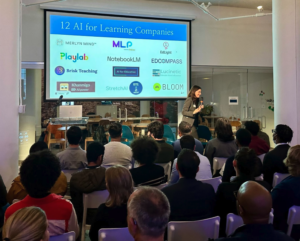
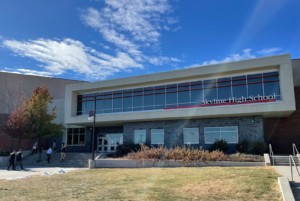
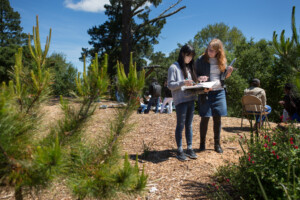
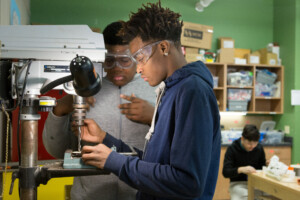
0 Comments
Leave a Comment
Your email address will not be published. All fields are required.